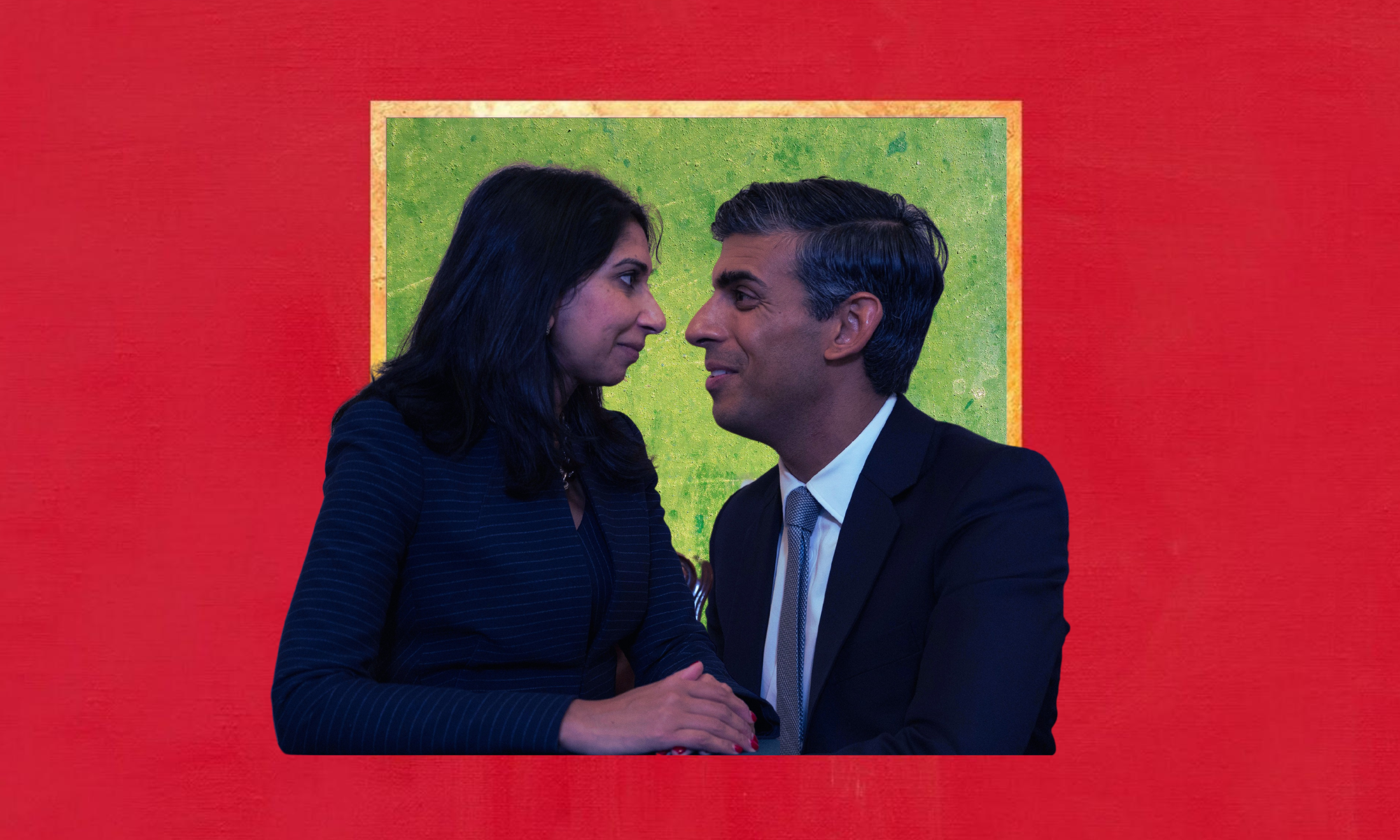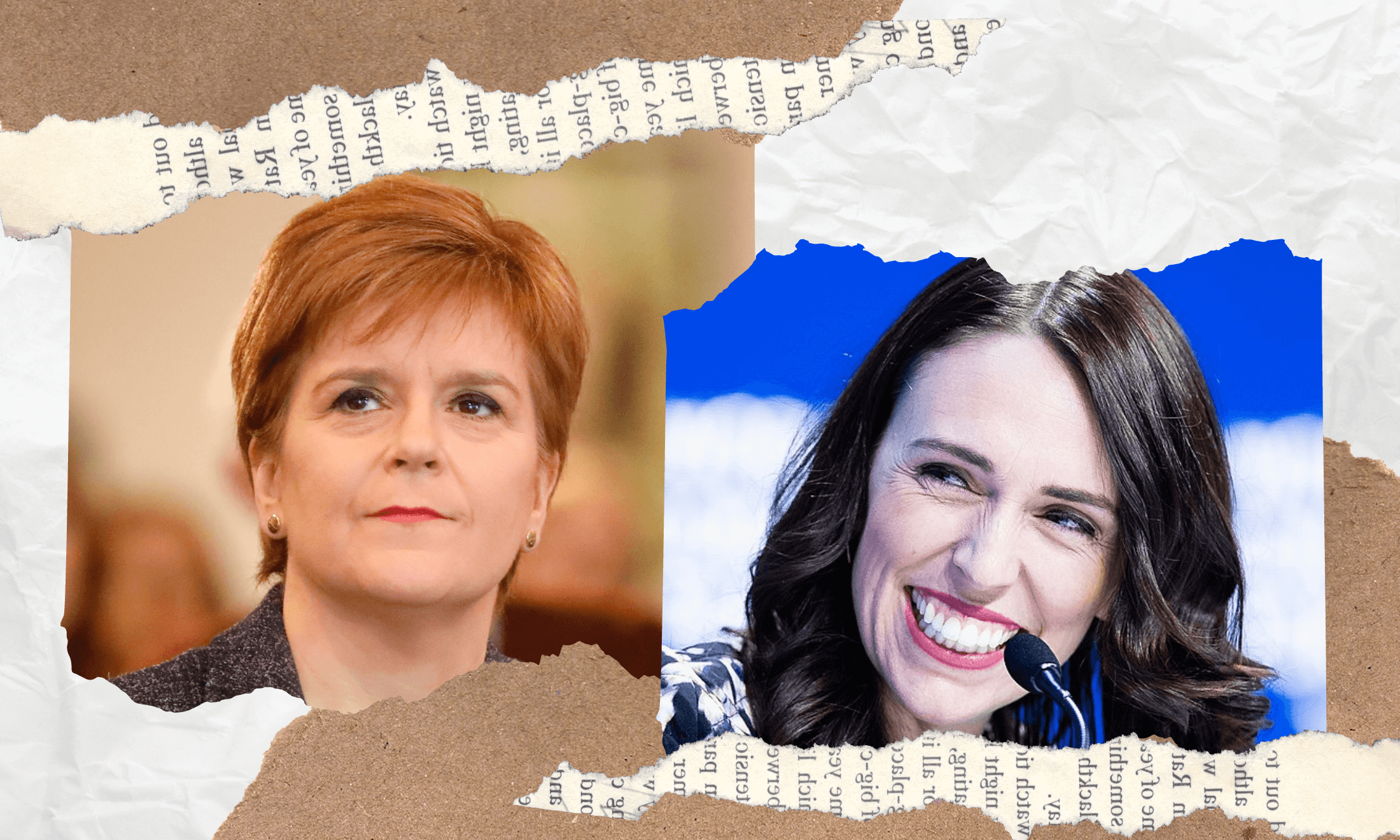Keir Starmer is a wet wipe
The Labour leader's 2020 has been defined by a distinct lack of action.
Moya Lothian McLean
15 Dec 2020

Image: Canva
How do you handle a problem like a racist caller, peddling a well-known white nationalist conspiracy theory on a live radio phone-in?
If you’re Labour leader Keir Starmer, you ignore it altogether and hope no one will notice. Perhaps such a scenario wasn’t covered in his unconscious bias training.
Unfortunately for Keir, people have ears, which means that many picked up on LBC caller “Gemma” slipping in a not-so-subtle invocation of the Great Replacement Theory – an ethnonationalist piece of hokum that posits white European populations are slowly being replaced by ethnic minority immigrants – during his monthly call-in show on the station yesterday.
During a discussion about Millwall supporters recently booing footballers who took a knee, a gesture that’s come to symbolise support for racial equality movements like Black Lives Matter, “Gemma” phoned in to add her two cents.
Claiming that her husband was one of the supporters heckling players (an assertion that is almost certainly false, given Gemma’s actual name is allegedly Jody and she’s a known far-right personality who lives in Ibiza), she then proceeded to reveal her real reason for calling in – to amplify a white supremacist conspiracy theory.
“In the wake of organisations like BLM, and other racial advocacy groups pushing what’s best for their people, I just want to ask: should white people also start playing identity politics before they become a minority themselves before 2066?,” Gemma/Jody said.
Keir didn’t challenge this declaration, neither the first time it was brought up, nor a few minutes later when Gemma/Jody repeated it again but even more unequivocally, saying:
“If anything the racial inequality is now against the indigenous people of Britain, because we are set to become a minority by 2066”.
While watching Starmer resolutely feign momentary loss of hearing rather than tell a white supremacist where to get off was utterly demoralising, it was also completely in keeping with the precedent for dodging taking an actual stance he’s set in 2020. Keir Starmer, you see, is a chicken.
A year of inaction
When Starmer first ascended to Labour leader in April, he was somewhat of an enigma. Not the exciting, Dan Brown kind, but the middle-class lawyer kind. No one knew exactly what he stood for really, other than some proclamations about being a dyed-in-the-wool socialist and the McLibel case. Keir had only become an MP in 2015; he’d been the architect of Labour’s disastrous Brexit strategy and promised to bring unity to the left and right of the party.
It seemed a big promise for such a green MP to make but Keir was voted in regardless, perhaps because he was fresh blood but more likely because he’d gone to Oxford, was a middle-aged London-based lawyer and a knight of the realm to boot.
Eight months later and it’s become clearer that Keir doesn’t particularly stand for anything. Instead, his tenure as Labour leader has so far been marked by profound cowardice and fence-sitting. He’s combined both an unwillingness to offer anything in the way of new ideas, new policies and steps forward, with a simultaneous failure in defending existing left-wing battlegrounds – and minority groups.
At a time when it has never been easier to oppose faltering Tory policy and promote left-wing alternatives to misery, he has instead chosen, time and time again, to remain silent. If Keir’s first year in power can be summed with one word it would be “abstention”.
For those of us watching from the beginning, it was obvious that Keir was scared, terrified even, of making the wrong move. These fears were hardly unfounded; predecessor Jeremy Corbyn has had decades worth of work as an anti-racist activist and campaigner washed away, instead finding himself regarded as a dangerous bigot by much of the British public.
“Keir has defined his leadership by bottling it on high-stakes issues”
Labour party members were also more divided than they had been in decades, a renewed “hard-left” refusing to just cede ground to the centre-right after five years in power and a taste of hope. Social media discourse was toxic, the base split and Labour were also facing a general public who had overwhelmingly voted in favour of a Tory party promising the most overtly racist political agenda in years. This was the kingdom Keir was to inherit.
Early fear though, has turned to paralysis. Try and name a single Keir Starmer policy. Go on, think of it now. Anything? Nope.
Now name a Keir Starmer abstention.
Since September, Keir has ordered his party to abstain on controversial votes concerning Covid-19 tiers, the Covert Human Intelligence Source bill (aka the “spy cops” bill) and the Overseas Operations bill (also known as the “torture” bill).
All three abstentions proved baffling decisions. Both the spy cops and torture bills have been denounced extensively by human rights activists, who warn that they amount to essentially allowing soliders and undercover agents carte blanche to “rape, murder and torture in the name of national security”. Three junior shadow ministers, including Nottingham East MP Nadia Whittome, were even stood down from their roles after defying Keir to vote against the torture bill.
More recently, opposition to the introduction of the Covid-19 tier system, and the consequences for already struggling northern areas, was such that the vote brought a mass Tory rebellion. If Labour had chosen to oppose in numbers too, the bill would have been defeated. But under Keir’s leadership, they didn’t, something now so predictable that Boris Johnson even factored it into his decision making.
Internally too, Keir has defined his leadership by bottling it on high-stakes issues. He’s managed to piss off a variety of minority groups within Labour, through a perceived lack of action. Muslim supporters are aggrieved at a failure to deal with Islamophobia, while anti-Black racism appears to have been brushed under the carpet.
Transgender individuals also fear that Labour is becoming, at best, complacent and, at worst, an actively dangerous environment for them, after Keir failed to actively condemn successive transphobic comments by MP Rosie Duffield, against a backdrop of increasingly hostile attitudes to trans people popping up in mainstream politics.
Passive over proactive
Keir’s responses to these issues are all of the same ilk. First, there is conspicuous silence, amid rising tensions and pleas for leadership. Eventually, he breaks that silence with a tepid statement that pleases no one on either side of the divide. He does not lead proactively; he reacts, passively.
Even on the one issue where he has been forcefully active – the antisemitism crisis – he has failed to unify the base in support of the Jewish members who should be centred. Instead lines have been drawn that seem to entrench factional divides, even leading to the suspension of long-term Jewish members on the Labour left, while amplifying voices of non-Jewish members on the Labour right.
It’s been a year since Labour’s devastating and decisive loss in the 2019 election and Starmer began his campaign to become the next leader. Back then, Boris Johnson looked untouchable. But by the time Starmer took the reigns, Boris was already faltering, the pandemic having derailed his plans for a year-long Brexit victory lap.
What came next was akin to an open goal for any opposition leader: mounting, preventable deaths, a failure to provide clear and accurate public health information, multi-million pound contracts awarded to Tory friends and family, a special advisor making lockdown-breaking trips while almost certainly infected with the virus and the refusal to feed starving school children.
“Keir seems to have opted for a “forensic” approach, which means overcautiousness to the point of inaction”
Furthermore, with the Tories’ traditional business owner voter base alienated and upset by inadequate financial support, and new northern voters immediately feeling betrayed by perceived Westminster favouritism for London, there was a real opportunity to claw back some ground for Labour.
What was needed was a strong message and decisive leadership (cough, King in the North). Instead, Keir seems to have opted for a “forensic” approach, which seems to mean overcautiousness to the point of inaction, and making zingers in Prime Minister’s Questions that most of the country aren’t going to hear.
Funnily enough, this method has not got Labour anywhere near to the long-promised 20-point lead in the polls. Nor has it made much of an impression, beyond a measly 36% of Brits now telling YouGov that Keir could, perhaps, be a better prime minister than Boris. After the year Boris has had, this is not even close to damning with faint praise.
Maybe 2021 will bring a new, charged up Keir. Perhaps he’s got a long-term goal that we’re simply not privy to. But if it means abandoning marginalised voters, entertaining far-right theories on major broadcasting networks and failing to offer voters a better, fairer future during a period when it’s never been more needed, he can keep it. Keir Starmer, put one pair of cojones on your Christmas list.

Britain’s policing was built on racism. Abolition is unavoidable

How Pakistan’s Khwaja Sira and transgender communities are fearing and fighting for their futures

Their anti-rape performance went viral globally. Now what?





